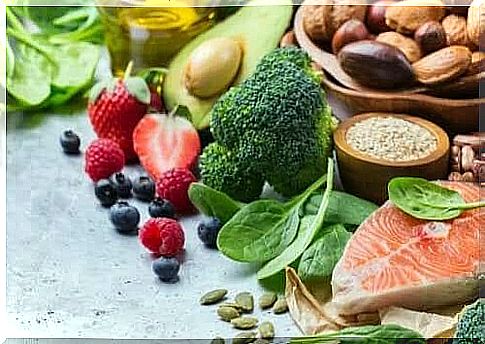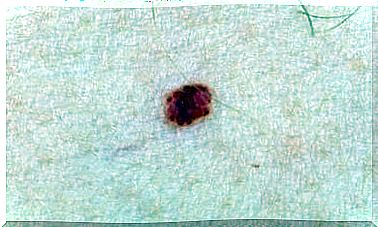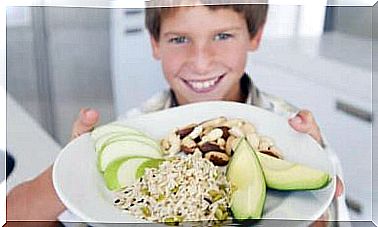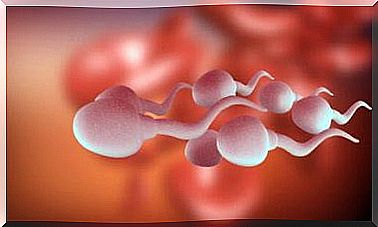How To Improve Your Digestion

Today’s question is: how can we give our digestive system a helping hand and improve our overall digestion?
The digestive system is the center of our food, as it helps us absorb nutrients and maintain good physical and mental health. It consists of a set of organs which, by secreting substances such as enzymes, gastric juices, among others, divide the food into smaller particles.
Did you know that a change in any of the digestive phases can cause discomfort or even malnutrition? We will now tell you how you can improve your digestive health by eating properly.
Do you have good digestion?
In some countries, up to 50% of the population suffers from some type of digestive disorder, and this figure is rising. Most are related to the gut, because this is where we find the bacteria that are responsible for digesting.
Food that has not been properly digested in the stomach is fermented by microbial bacteria, giving rise to symptoms that can be as different as:
- Swollen stomach
- Gases and belching
- Reflux and acid reflux
- Overweight
- Food intolerance
- Nausea and vomiting
- Diarrhea or constipation
These can also be accompanied by itchy skin, headaches, mood swings, fatigue, weight loss due to lack of appetite or weight gain.

Factors that change our digestion
There are many different causes, but the most common are:
- Excessive use of anti-inflammatory and antacid drugs
- Stress
- A bad diet
- Tobacco
- Physical inactivity
As a consequence, the quality and quantity of intestinal bacteria decreases, and the secretion of stomach acid and digestive enzymes also decreases. Inflammatory and metabolic markers in our blood also change. However, we can improve these symptoms by addressing the root cause.
The microbiome: The therapeutic target for our digestion
The microbiome is a set of microorganisms (viruses, bacteria and fungi) that live mainly in the colon. These microorganisms are responsible for synthesizing nutrients such as vitamin K, stimulating the immune system and protecting us from infections. In addition, they affect our behavior, our mood, our weight and the development of diabetes, etc.
There is usually a balance in the number and type of microorganisms, but these tend to be altered by the increased permeability of the intestinal wall, which in turn prevents the passage of toxins. How can it be restored? By eating healthy!
A practical guide to improving digestion
Probiotic food
When we talk about probiotics, we mean the microorganisms that live in our intestines. Eating food with these bacteria is the first step in being able to recolonize it and improve its function.
Although they are sold in tablet and powder form, there are also some food products that have undergone a fermentation process by adding probiotics to them.
Their great advantage is that they are immune to the harsh environment of the stomach and that they survive all the way into the intestine. So where can you find probiotics?
- In natural yogurt
- In kefir – this is similar to yogurt and can come from cow’s or goat’s milk, or even coconut water
- Kombucha (te)
- Sauerkraut and other fermented vegetables
- Miso (soy paste used to make soups)

Prebiotic food
Once you have restored the function of your intestines and the symptoms have improved, it is the perfect time for you to start adding prebiotics to your diet. If not, you will continue to experience bloating, obesity and gas.
A prebiotic is the nutrient that probiotics eat and can be the following: fermentable fibers, polyphenols (natural antioxidants) and healthy fats. Let’s look at them one by one.
Fermentable fibers
These are found in fruits, vegetables, grains, tubers, legumes and seeds. We especially recommend:
- Cooked banana, carrot and apple
- Leeks, fennel, onions, asparagus and artichokes
- Oatmeal, which also helps reduce cholesterol
- Boiled and cold brown rice that you can heat at a low temperature before eating
- Boiled and chilled potatoes and sweet potatoes. This way you release the starch.
- Well-cooked legumes
- Flax and chia seeds. Crush them or soak them preferably.
Polyphenols
These antioxidants are found in red fruit, pure cocoa and spices. But what about chocolate? Well, we would recommend chocolate that has at least 70% cocoa. Remember that just because chocolate is dark does not mean it has a high content of cocoa.
Healthy fats
These are omega-3 fatty acids found in fatty fish (salmon, tuna, sardines, mackerel, etc.) and nuts . It is also found in extra virgin olive oil and avocado. They have an anti-inflammatory effect and are the main component of cell membranes. This is why you should get them in you daily.
So this is how you can improve your digestion with the right foods. As you can see, it’s easy when you know how to do it.
But you also have the opportunity to go to a dietitian to evaluate your situation and he or she can give you advice that suits you and your family specifically.








